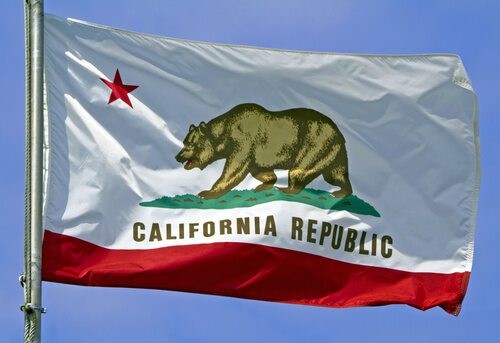
California Proposes Increases in Fuel and Vehicle Taxes to Fund Transport Facilities
“I like to pay taxes. With them, I buy civilization” —Said No One Ever
Admittedly, the “Said No One Ever” part was added by the author. The quote is accepted as a paraphrase of “Taxes are what we pay for a civilized society,” written by U.S. Supreme Court Justice Oliver Wendell Holmes, Jr., in a dissent he wrote in 1927. It has been paraphrased and requoted in various forms, perhaps because the sentiment used to be common in a way that it no longer is?
The topic of tax increases is contentious, and it seems even more contentious when the tax increase affects gasoline. Yet California now is proposing an increase in taxes on gasoline and diesel. The tax increase will be 12 cents/gallon excise tax on gasoline, 20 cents/gallon excise tax on diesel, and an additional 4% increment sales tax on diesel, to start November 1, 2017. The bill proposes a new Transportation Improvement Fee (TIF,) that escalates based on the market value of vehicles. It also proposes a Road Improvement Fee of $100 per vehicle for Zero-Emission Vehicles (ZEVs,) which have been exempt from certain fees to promote their adoption.
As a practical side note for fuel marketers and fuel purchasers, an increase in California’s motor fuel taxes is likely to cause a surge in fuel buying at stations just before the border crossing.
The bill is SB-1 “Transportation funding (2017-2018,)” with full text available at leginfo.legislature.ca.gov. The following summary is taken from the Assembly Floor Analysis:
SUMMARY: Increases several taxes and fees to raise the equivalent of roughly $52.4 billion over ten years in new transportation revenues and makes adjustments for inflation every year; directs the funding to be used towards deferred maintenance on the state highways and local streets and roads, and to improve the state’s trade corridors, transit, and active transportation facilities. Specifically, this bill:
1) Increases a number of taxes and fees for transportation purposes:
- Increases the excise tax on gasoline by $0.12 per gallon, starting November 1, 2017.
- Increases the excise tax on diesel fuel by $0.20 per gallon, starting November 1, 2017.
- Increases the sales tax on diesel fuels by an additional 4% increment, starting November 1, 2017.
- Creates a new annual Transportation Improvement Fee (TIF), starting January 1, 2018, based on the market value of the vehicle with the fee range described below:
- $25 per year for vehicles with a market value of $0- $4,999;
- $50 per year for vehicles with a market value of $5,000 – $24,999;
- $100 per year for vehicles with a market value of $25,000 – $34,999;
- $150 per year for vehicles with a market value of $35,000 – $59,999; and,
- $175 per year for vehicles with a market value of $60,000 and higher
- Creates the Road Improvement Fee of $100 per vehicles for Zero-Emission Vehicles (ZEV)s, as defined, starting in 2020 for model year 2020 and later.
California Governor Jerry Brown made a personal appeal to the Senate to support this bill, acknowledging the political difficulties of increasing taxes but speaking strongly for the need to repair transport infrastructure.
As a quick calculation of costs related to gasoline:
- California used 15,297,030,909 gallons of gasoline in 2016, according to the Board of Equalization.
- California’s population is estimated at 39.35 million.
- Gasoline consumption per capita therefore is 388.74 gallons/year.
- An increase of 12 cents per gallon in gasoline tax equates to $46.65 per person per year.
Naturally, since not all people drive, the cost for active motorists will be higher. However, motorists may find the “user-pays” tax palatable if the revenue is strictly devoted to the task of fixing roads. In the past, monies collected for transportation purposes were diverted because of a state budget crisis. The language of SB-1 is being crafted to prevent diversion.
It is noteworthy that President Donald Trump recently stated that he would consider raising the federal tax on gasoline to help pay for some of the infrastructure spending he promised during his campaign. Although President Trump promised to cut taxes, he must now find the money to pay for the ambitious projects he has proposed. It would be an interesting moment in political history to find President Trump and Governor Jerry Brown both advocating higher taxes on gasoline.
This article is part of Daily Market News & Insights
Tagged: California, fuel, increases, taxes, vehicle
MARKET CONDITION REPORT - DISCLAIMER
The information contained herein is derived from sources believed to be reliable; however, this information is not guaranteed as to its accuracy or completeness. Furthermore, no responsibility is assumed for use of this material and no express or implied warranties or guarantees are made. This material and any view or comment expressed herein are provided for informational purposes only and should not be construed in any way as an inducement or recommendation to buy or sell products, commodity futures or options contracts.






